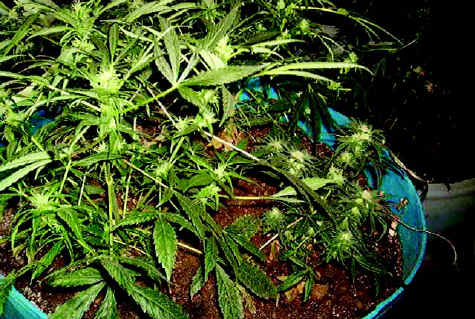 Psychotherapy is an important tool in the struggle to overcome drug abuse. Various forms of psychotherapy have been employed to help individuals understand the past and learn problem solving strategies for dealing with many of life’s pressing problems.
Psychotherapy is an important tool in the struggle to overcome drug abuse. Various forms of psychotherapy have been employed to help individuals understand the past and learn problem solving strategies for dealing with many of life’s pressing problems.
Psychotherapy is known by different names such as therapy, talk therapy, counseling, and psychosocial therapy. Psychotherapy is an important part of a comprehensive drug treatment program and any program you enter should include individual as well as group counseling sessions.
Psychotherapy can help in many ways. Some of these include:
* Discovering effective coping techniques and new possibilities for solving problems. Many substance abusers report using drugs to help them cope with life. Discovering alternative ways of dealing with the ups and downs of life is vital to lasting recovery.
* Understanding some of the reasons for abusing substances.
* Learning to identify and change behaviors and/or thoughts that can adversely affect your life.
* Exploring important relationships and experiences and learning how they may be helping or hindering your recovery.
* Learning to set and reach realistic goals. Understanding how to think in terms of goals is an effective strategy in overcoming depression.
Psychotherapy is important in alleviating symptoms of mental illness that may be underlying factors in substance abuse. Therapy may be short-term or long-term, depending on the individual situation. Psychotherapy sessions can be conducted in group, family or individual therapy settings.
[Read more →]
Tags: Drug Addiction Alternative Treatment
 For much of his adult life, Robert Downey Jr., 43, was caught in a ruinous cycle of drug addiction, imprisonment and disgrace. (This post has excerpts from an article in Parade Magazine)
For much of his adult life, Robert Downey Jr., 43, was caught in a ruinous cycle of drug addiction, imprisonment and disgrace. (This post has excerpts from an article in Parade Magazine)
Raised in a show-business family, Downey claims that by 8 he already had used drugs with his dad, a filmmaker.
“I was mercurial and recklessly undisciplined and, for the most part, I was happily anesthetized.”
“You use whatever rationalization you can to justify the fact that you’re not living truthfully,” he observes about substance abuse. “You make this death machine seem glamorous so you can get on to the next moment. But it isn’t glamorous, and it isn’t fun.”
“Now it’s all about becoming rooted in the mundane, in the day-to-day stuff,” he continues. “Life is 70% maintenance. I think of myself as a shopkeeper or a beekeeper. I’m learning the business of building a life.”
“Instead of getting instant gratification by getting high, I push my nose as far into the grindstone as I can. The honey, the reward, is the feeling of well-being, the continuity, the sense that I am walking toward a place I want to go.”
[Read more →]
Tags: Drug Abuse
 The book, Beautiful Boy, by David Sheff, is a heartbreaking and wrenching story of a father’s journey through his son’s drug addiction. He states that he was addicted to his son’s addiction. Any parent who has had a child abuse drugs will be able to identify with this story.
The book, Beautiful Boy, by David Sheff, is a heartbreaking and wrenching story of a father’s journey through his son’s drug addiction. He states that he was addicted to his son’s addiction. Any parent who has had a child abuse drugs will be able to identify with this story.
I know I did. Even though my son did not use Meth (thank God) and did not disappear for weeks at a time on the streets, there were still many anxious moments wondering if he was OK.
David Sheff mentions early on how he confronted his son, Nic, about smoking Pot (Marijuana) and at first Nic lies and denies it. Then Nic admits that he is using some drugs “like everyone,” “just pot,” and only “once in a while.”
Over time, Nic gets more and more involved in using drugs including Meth and is in and out of rehab several times. Nic is in denial that he is an addict.
In recovery, Nic Sheff states that “a using addict cannot trust his own brain – it lies, says, ‘You can have one drink, a joint, a single line, just one.'” Nic learned that he could not trust his own brain.
[Read more →]
Tags: Drug Abuse
 Street drugs such as heroin or crack cocaine are more likely to be used by the poor, whereas prescription drugs are more likely used by the rich.
Street drugs such as heroin or crack cocaine are more likely to be used by the poor, whereas prescription drugs are more likely used by the rich.
Actor Heath Ledger died from ‘acute intoxication’ caused by an overdose of prescription drugs. Other celebrities have also been in the spotlight news such as Rush Limbaugh, Britney Spears, and Lindsay Lohan.
It has been reported that the misuse of prescriptions leads to prescription drugs addiction and now kills more Americans than illegal street drugs, approximately 20,000 a year, which is double 10 years ago.
According to the 2006 National Survey on Drug Use and Health about teenagers aged 12-17, prescription drugs are second only to marijuana in popularity, and in the past 15 years there has been a 140 per cent increase in abuse. It is the fastest-growing type of drug abuse in the US.
[Read more →]
Tags: Prescription Drugs Addiction
Researchers have generally known that people with ADHD are more likely than others to smoke cigarettes and abuse alcohol, marijuana, cocaine and other drugs.
[Read more →]
Tags: Drugs and Brain Disorders · Street Drugs

Marijuana is the most frequently used illegal substance in many countries, including the United Kingdom and the United States and it seems to increase the chance of becoming psychotic, researchers report in an analysis of past research that brings up the old issue of whether pot is dangerous.
The new review suggests that even infrequent use of marijuana could raise the small but real risk of this serious mental illness by 40 percent.
Doctors have long suspected a connection and say the latest findings underline the need to highlight marijuana’s long-term risks. The research, paid for by the British Health Department, was published recently in the medical journal The Lancet. (thelancet.com)
“The available evidence now suggests that cannabis is not as harmless as many people think,” said Dr. Stanley Zammit, one of the study’s authors and a lecturer in the department of psychological medicine at Cardiff University.
[Read more →]
Tags: Marijuana Addiction
In studies of patients who had smoked marijuana, Dr. Daniel Amen found significant changes in brain activity, especially those who were heavy users. Decreased brain activity was found in the prefrontal cortex and temporal lobes.
[Read more →]
Tags: Drugs and Brain Disorders · Marijuana Addiction
The scans of brains of people who have abused drugs showed abnormalities.
[Read more →]
Tags: Drugs and Brain Disorders
Drug abuse and brain disorders often co-exist. In some cases, mental diseases may precede addiction; in other cases, drug abuse may trigger or exacerbate mental disorders, particularly in individuals with specific vulnerabilities.
What are the medical consequences of drug addiction?
Individuals who suffer from addiction often have one or more accompanying medical issues, including lung and cardiovascular disease, stroke, cancer, and mental disorders. Imaging scans, chest x-rays, and blood tests show the damaging effects of drug abuse throughout the body. For example, tests show that smoking causes cancer of the mouth, throat, larynx, blood, lungs, stomach, pancreas, kidney, bladder, and cervix. In addition, some drugs of abuse, such as inhalants, are toxic to nerve cells and may damage or destroy them either in the brain or the peripheral nervous system.
What harmful consequences to others result from drug addiction?
[Read more →]
Tags: Drugs and Brain Disorders · Smoking - Nicotine Addiction
Although taking drugs at any age can lead to addiction, research shows that the earlier a person begins to use drugs the more likely they are to progress to more serious abuse. This may reflect the harmful effect that drugs can have on the developing brain.
[Read more →]
Tags: Drug Abuse
 Psychotherapy is an important tool in the struggle to overcome drug abuse. Various forms of psychotherapy have been employed to help individuals understand the past and learn problem solving strategies for dealing with many of life’s pressing problems.
Psychotherapy is an important tool in the struggle to overcome drug abuse. Various forms of psychotherapy have been employed to help individuals understand the past and learn problem solving strategies for dealing with many of life’s pressing problems.  For much of his adult life, Robert Downey Jr., 43, was caught in a ruinous cycle of drug addiction, imprisonment and disgrace. (This post has excerpts from an article in Parade Magazine)
For much of his adult life, Robert Downey Jr., 43, was caught in a ruinous cycle of drug addiction, imprisonment and disgrace. (This post has excerpts from an article in Parade Magazine) The book, Beautiful Boy, by David Sheff, is a heartbreaking and wrenching story of a father’s journey through his son’s drug addiction. He states that he was addicted to his son’s addiction. Any parent who has had a child abuse drugs will be able to identify with this story.
The book, Beautiful Boy, by David Sheff, is a heartbreaking and wrenching story of a father’s journey through his son’s drug addiction. He states that he was addicted to his son’s addiction. Any parent who has had a child abuse drugs will be able to identify with this story. Street drugs such as heroin or crack cocaine are more likely to be used by the poor, whereas prescription drugs are more likely used by the rich.
Street drugs such as heroin or crack cocaine are more likely to be used by the poor, whereas prescription drugs are more likely used by the rich.